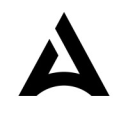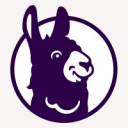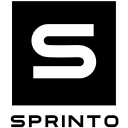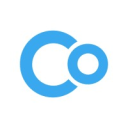Drata vs OneTrust: Which compliance solution is right for your business?
- 01Drata vs OneTrust: overview
- 02What's the difference between Drata and OneTrust?
- 03Drata pros and cons
- 04OneTrust pros and cons
- 05Drata compared to OneTrust
- 06OneTrust compared to Drata
- 07Features comparison
- 08Drata vs OneTrust: Which is the best for your business?
- 09Promotions on Security software
- 10Alternatives to Drata & OneTrust
Save up to $11,400 on Drata
Drata
30% off for 1 year
Save up to $11,400 on Drata
Drata
30% off for 1 year
If you manage your organization’s compliance and security, then an effective compliance automation platform is essential. By streamlining audit processes and automating compliance tasks, you can save valuable time and reduce human error. A compliance platform also helps ensure that your business stays on top of evolving regulatory requirements, providing a reliable foundation for data privacy and security. But with numerous compliance tools available, how do you select the best one for your organization?
This article is a great starting point. In it, we compare two leading compliance automation platforms—Drata vs OneTrust. With our detailed comparison of their key features, critical differences, and pricing models, you'll have the information you need to make an informed decision.
Drata vs OneTrust: overview
Drata and OneTrust are two prominent players in the field of compliance automation platforms and legal software, each offering unique strengths designed to meet different organizational needs.
Drata is known for its powerful automation capabilities and seamless integrations, making it an ideal choice for businesses that want to streamline their compliance processes and achieve certifications like SOC 2, ISO 27001, and GDPR more efficiently. In contrast, OneTrust is a comprehensive platform that offers a wide range of privacy, security, and governance tools, making it suitable for organizations looking to manage not only compliance but also privacy initiatives, third-party risk, and data governance.
To decide between Drata and OneTrust, it's crucial to consider your specific business requirements, industry standards, and privacy needs. Drata is an excellent choice for companies focusing on simplifying compliance audits and leveraging automation, while OneTrust is the go-to solution for those needing a broader, feature-rich platform that addresses complex privacy, security, and data governance challenges.
What's the difference between Drata and OneTrust?
Drata and OneTrust are respected players in the compliance and data privacy landscape, providing a wide range of tools to help organizations meet regulatory requirements and ensure data security. However, when deciding which platform best suits your needs, it’s essential to understand several key distinctions between them.
The primary difference lies in their core focus and the suite of features they offer. Drata specializes in compliance automation, making it a strong choice for companies aiming to achieve and maintain industry certifications like SOC 2, ISO 27001, and GDPR with minimal manual effort. It emphasizes automation, continuous control monitoring, and seamless integration with existing tech stacks, including cloud services, identity providers, and development tools, which helps companies streamline the audit process efficiently.
In contrast, OneTrust provides a more comprehensive suite of tools that span across privacy, compliance, governance, and third-party risk management. OneTrust is not just about audit readiness but also focuses heavily on privacy management and data governance, making it ideal for organizations that want to implement a broad data protection strategy. It offers privacy impact assessments, consent management, data mapping, and cookie compliance features, which extend its utility beyond compliance automation into a more holistic approach to managing data privacy across the business.
Another notable distinction is in their approach to integrations. Drata emphasizes its ability to integrate with core IT systems, security tools, and cloud platforms, making it effective for rapidly growing tech companies focused on achieving security frameworks. OneTrust, meanwhile, supports a broader range of integrations across privacy, risk, and compliance-related areas, offering a more interconnected platform for organizations handling complex privacy needs.
While Drata is highly suitable for companies wanting to automate compliance processes efficiently, OneTrust's extensive feature set is more appropriate for businesses looking for a comprehensive solution to manage privacy, security, and compliance holistically.
Drata pros and cons
What are the advantages of Drata?
- Automation-driven compliance: Drata offers significant automation capabilities for monitoring and maintaining compliance controls, reducing manual effort and saving time on audits. This is ideal for fast-growing companies that need to stay compliant without heavy administrative work.
- Seamless integrations: Drata integrates smoothly with major tools like AWS, Azure, GCP, GitHub, and Okta, allowing businesses to easily connect their existing infrastructure and streamline compliance monitoring.
- Continuous control monitoring: Drata provides continuous control monitoring and automated evidence collection, ensuring compliance is maintained in real-time rather than just during audit periods. This provides better visibility into the compliance posture.
- Ease of use: Drata is known for its user-friendly interface and streamlined onboarding process, making it accessible even for those without extensive compliance experience. It simplifies the path to obtaining certifications like SOC 2, ISO 27001, and GDPR.
- Audit-ready reports: Drata offers audit readiness features and detailed compliance reports that help companies stay prepared for audits, allowing for smoother, quicker certification processes.
What are the disadvantages of Drata?
- Limited privacy management features: Drata is primarily focused on compliance automation for frameworks like SOC 2 and ISO 27001. It lacks some of the broader privacy management features (such as data mapping and consent management) offered by platforms like OneTrust.
- Targeted integrations: While Drata integrates well with core IT and security tools, it has a more limited number of integrations compared to broader privacy and compliance platforms, which could be restrictive for organizations with diverse software environments.
- Narrow scope: Drata is highly specialized in compliance management, but it doesn't provide features for managing third-party risk, privacy impact assessments, or cookie compliance—areas where more comprehensive platforms like OneTrust excel.
- Scaling limitations for non-tech industries: Drata’s feature set is highly appealing to tech startups and mid-sized tech companies, but it may not be as robust for larger, non-tech enterprises with complex compliance needs, or those that require in-depth customization.
- Pricing structure: For smaller businesses or startups on a budget, Drata's pricing might be considered steep compared to more affordable, albeit less automated, compliance solutions. The cost might be a consideration for companies just starting their compliance journey.
Compare Drata to other tools
OneTrust pros and cons
What are the advantages of OneTrust?
- Comprehensive privacy and compliance platform: OneTrust offers a wide range of features, including privacy management, data governance, third-party risk management, and consent management, providing a holistic approach to compliance and data privacy.
- Advanced data mapping and discovery: OneTrust excels in data mapping, helping organizations visualize where data is stored, how it moves through systems, and ensuring compliance with privacy laws such as GDPR, CCPA, and others.
- Scalable for large enterprises: The platform is designed to cater to the needs of larger organizations with complex compliance requirements. Its extensive toolset and flexibility make it suitable for businesses operating in multiple regions with varying privacy regulations.
- Privacy and consent management: OneTrust includes strong features for managing data subject requests, cookies, and consent, ensuring that businesses are able to comply with data privacy laws and provide transparency to their users.
- Extensive integrations: OneTrust offers numerous integrations across privacy, compliance, and governance-related applications, which makes it easier for organizations to centralize their compliance efforts and ensure seamless data flow between platforms.
What are the disadvantages of OneTrust?
- Complexity of setup: Due to its broad range of features, OneTrust can be complex to set up and configure. It may require significant time and expertise to tailor the platform to fit an organization's specific requirements.
- High cost: OneTrust is often seen as an expensive solution, particularly for small to mid-sized companies. The extensive features and scalability come at a cost that may not be justified for businesses with simpler compliance needs.
- Steep learning curve: The sheer number of tools and features offered by OneTrust can be overwhelming, requiring extensive training for teams to fully understand and utilize the platform effectively.
- Customization limitations: While OneTrust provides a comprehensive suite, customizing features to meet specific industry or organizational requirements can be challenging without additional support or technical resources.
- Support availability: Some users report that OneTrust’s customer support can be inconsistent, especially for more complex issues. This can slow down the implementation or resolution of problems for teams that require immediate assistance.
Compare OneTrust to other tools
Drata compared to OneTrust
Drata and OneTrust both offer compliance solutions but cater to different organizational needs. Drata focuses on automating compliance processes, providing a streamlined path to certifications like SOC 2 and ISO 27001 with features like continuous monitoring and real-time audit readiness. It is ideal for tech companies seeking simplicity and automation.
On the other hand, OneTrust delivers a broader platform that includes privacy management, third-party risk, and data governance, making it suitable for organizations needing a comprehensive data privacy strategy. While Drata emphasizes automation and simplicity, OneTrust offers a wider scope for managing privacy and compliance holistically.
Is Drata better than OneTrust?
Whether Drata is better than OneTrust depends on your organization's specific needs. Drata excels in compliance automation, offering user-friendly features like automated evidence collection and access management, making it ideal for tech-focused companies that need efficient and straightforward compliance solutions.
However, OneTrust's broader scope, including privacy impact assessments, data mapping, and third-party risk management, makes it a better choice for organizations requiring a comprehensive data privacy framework. If your priority is a simplified approach to achieving industry certifications, Drata may be better suited. However, for extensive privacy management, OneTrust’s feature set offers a more complete solution.
What is Drata best used for?
Drata is best used for automating compliance processes and achieving industry certifications like SOC 2, ISO 27001, and GDPR efficiently. It is ideal for fast-growing companies, especially in the tech industry, that need to meet compliance standards without the burden of manual tracking and reporting.
Drata's platform continuously monitors compliance controls, integrates seamlessly with popular cloud and security tools, and automatically collects evidence for audits. This allows organizations to maintain a real-time view of their compliance posture, save time during audit preparations, and reduce human error, ultimately simplifying and accelerating the compliance journey.
Can Drata replace OneTrust?
Drata cannot fully replace OneTrust, as they serve different core functions within the compliance and data privacy landscape. Drata excels at automating compliance processes, helping organizations achieve and maintain certifications like SOC 2 and ISO 27001, making it a strong fit for companies focused on compliance automation and audit readiness.
In contrast, OneTrust provides a comprehensive suite of tools that address not only compliance but also privacy management, third-party risk, and data governance. Businesses that require extensive privacy management features, consent tracking, and data mapping will find OneTrust’s capabilities more comprehensive, while Drata is better suited for compliance automation.
Is Drata cheaper than OneTrust?
Drata is generally considered to be more affordable than OneTrust, particularly for small to mid-sized organizations focused on compliance automation. Drata's pricing is structured to provide essential compliance features, such as automated evidence collection and continuous monitoring, making it a cost-effective solution for companies pursuing certifications like SOC 2 or ISO 27001.
OneTrust, on the other hand, offers a more comprehensive platform with a wide range of privacy, compliance, and data governance features, which comes at a higher cost. For companies with simpler compliance needs, Drata's focused approach is typically more economical compared to OneTrust's extensive capabilities.
Is there a better Security software than Drata?
While Drata offers excellent compliance automation features and audit readiness capabilities, it's important to consider alternative compliance solutions to find the best match for your specific business requirements.
Several notable alternatives to Drata in the compliance and privacy management space include OneTrust, Vanta, Hyperproof, and Secureframe.
Selecting the ideal compliance software depends on factors such as your company size, industry, level of automation desired, and privacy needs. Drata is a great choice for simplifying compliance processes, but exploring these alternatives can provide valuable insights and help you make a well-informed decision that aligns with your compliance needs and growth objectives.
30% off for 1 year on Drata
Get 30% off for 1 year on Drata and up to $11,400 savings with Secret.
OneTrust compared to Drata
OneTrust and Drata serve different aspects of compliance and data management. OneTrust is a comprehensive platform designed for privacy management, data governance, and third-party risk, catering to organizations needing a wide range of tools for regulatory compliance and privacy initiatives. It is particularly suitable for large enterprises with complex privacy and data protection requirements.
Drata, on the other hand, focuses specifically on automating compliance processes for standards like SOC 2, ISO 27001, and GDPR. Its automation-driven approach helps tech companies streamline audits and achieve certifications more efficiently. OneTrust offers broader functionality, while Drata excels at compliance automation.
Is OneTrust better than Drata?
Whether OneTrust is better than Drata depends on the requirements of your organization. OneTrust is particularly advantageous for businesses needing comprehensive privacy tools, such as data mapping, privacy impact assessments, and vendor risk management, making it a better fit for large enterprises with complex regulatory environments. Its extensive integration capabilities also make it well-suited for those managing multiple privacy regulations across regions.
However, Drata's automation-focused platform is more suitable for organizations looking for a streamlined, real-time approach to achieving certifications like SOC 2. If your priority is in-depth privacy management, OneTrust is likely the better option.
What is OneTrust best used for?
OneTrust is best used for managing data privacy, governance, and regulatory compliance comprehensively. It provides tools for privacy management, such as data mapping, consent tracking, and privacy impact assessments, making it ideal for businesses navigating complex data protection laws like GDPR, CCPA, and others.
Additionally, OneTrust's third-party risk management features help organizations assess and mitigate risks from external partners. Its extensive capabilities are particularly valuable for larger enterprises requiring a centralized platform to oversee privacy practices, manage data subject requests, and ensure compliance across multiple jurisdictions, making it a preferred choice for companies prioritizing robust data privacy solutions.
Can OneTrust replace Drata?
OneTrust cannot fully replace Drata, as the two platforms serve different core purposes. OneTrust offers a comprehensive solution for privacy management, data governance, and third-party risk, making it suitable for organizations that need a wide-ranging approach to data protection and privacy compliance.
Drata, on the other hand, focuses specifically on automating compliance processes and audit readiness for certifications such as SOC 2, ISO 27001, and GDPR. Its automation capabilities and real-time monitoring are tailored for simplifying compliance workflows. While OneTrust addresses broader privacy management needs, Drata excels at compliance automation, making the two platforms complementary rather than interchangeable.
Is OneTrust cheaper than Drata?
OneTrust’s pricing is generally more expensive than Drata due to its extensive feature set and broad capabilities in privacy management, data governance, and third-party risk management. OneTrust offers a wide range of tools that cater to large enterprises with complex privacy and compliance requirements, which contributes to its higher pricing.
Drata, on the other hand, focuses on compliance automation and audit readiness, providing essential features for achieving certifications like SOC 2 and ISO 27001 at a more cost-effective rate. For companies seeking streamlined compliance solutions, Drata tends to be the more affordable option, while OneTrust's comprehensive features come at a premium.
Is there a better Legal software than OneTrust?
While OneTrust provides a comprehensive solution for privacy management, data governance, and compliance, it's important to explore alternative software options to ensure the best fit for your organization's specific needs.
Several notable alternatives to OneTrust in the compliance and privacy management space include Drata, Vanta, Termly, and Hyperproof.
The selection of the ideal software depends on your organization's unique requirements, including the scope of compliance, privacy priorities, and scale of operations. If you need a broad-ranging solution for privacy and third-party risk, OneTrust may be a strong choice. However, exploring these alternatives can offer valuable insights and help you make an informed decision that aligns perfectly with your compliance goals and operational needs.
Features comparison
Drata Excels Ahead of OneTrust for Ease of Use
When it comes to ease of use, both Drata and OneTrust offer user-friendly interfaces designed to facilitate navigation and efficient operation. However, Drata stands out with its intuitive design and simplified features, making it easier for users to manage compliance processes in real-time without extensive technical expertise. Drata's automation capabilities streamline tasks like continuous monitoring, evidence collection, and audit preparation, allowing non-technical users to maintain compliance independently.
Unlike OneTrust, which may require more advanced setup and configuration, Drata’s straightforward approach minimizes the need for frequent IT involvement, making it an accessible and convenient option for teams seeking simplicity.
OneTrust Holds an Edge Over Drata for Integration Capabilities
In terms of integration capabilities, both Drata and OneTrust offer a wide range of possibilities, but OneTrust excels with a more extensive list of integrations, especially with popular IT tools and systems. OneTrust connects easily with platforms like Salesforce, Microsoft Dynamics, and various marketing automation and data governance tools, which allows businesses to centralize and streamline processes across different departments. Its robust API further facilitates custom integrations, enabling seamless adaptation into existing workflows with minimal disruption.
Drata, while effective in integrating with cloud and security tools like AWS, Okta, and GitHub, doesn’t yet match OneTrust's breadth of integration capabilities, making OneTrust a more comprehensive choice for businesses seeking extensive connectivity.
Drata Outperforms OneTrust for Automated Evidence Collection
Drata outperforms OneTrust when it comes to automated evidence collection, making compliance management significantly more efficient. Drata's integrations with systems like AWS, Azure, Google Cloud, and GitHub allow for seamless, automated gathering of compliance evidence, such as system configurations, access logs, and security controls, without manual intervention. This automation saves time and reduces the risk of human error during audit preparation.
OneTrust, while offering powerful privacy management and data governance tools, lacks the same level of automation for evidence collection. As a result, users often need to rely on manual processes, which makes Drata the superior choice for those seeking efficiency in compliance audits.
OneTrust Excels Ahead of Drata for Data Mapping and Inventory Features
OneTrust provides a superior data mapping and inventory feature, offering comprehensive insights into how data flows through an organization and where it is stored. This includes visual representations of data processing activities, helping businesses understand personal data lifecycle, identify risks, and comply with regulations like GDPR and CCPA. For example, OneTrust's data mapping tools enable users to track personal data across departments, systems, and third parties.
While Drata focuses on continuous monitoring of compliance controls, it does not emphasize detailed data categorization and personal data management. Therefore, for businesses that need an in-depth understanding of data processing, OneTrust is the better choice.
Both Drata and OneTrust Offer Robust Risk Management Solutions
Both Drata and OneTrust provide comprehensive risk management tools, though they focus on different aspects of risk mitigation. Drata's platform includes automated control tests that continuously monitor compliance controls and alert users to potential risks in real-time, which is ideal for identifying internal security issues. For example, Drata can automatically check access controls or configuration settings to ensure compliance.
On the other hand, OneTrust excels at managing risks related to third-party vendors, providing features for assessing, monitoring, and mitigating vendor-related risks through a centralized platform. This includes vendor risk assessments, ongoing monitoring, and detailed reporting. Depending on whether your organization is more focused on internal compliance risks or third-party vendor risks, both Drata and OneTrust are strong solutions for effective risk management.
OneTrust Excels Ahead of Drata for Privacy Impact Assessments
OneTrust's automated tools for conducting Privacy Impact Assessments (PIAs) make it the superior choice for businesses focused on identifying and mitigating privacy risks while ensuring compliance with global privacy regulations, such as GDPR and CCPA. OneTrust's PIA feature allows users to systematically evaluate the impact of data processing activities, automate risk identification, and generate reports to address potential privacy concerns. This helps organizations proactively manage data protection risks.
While Drata offers risk management tools, including automated control tests, it lacks specific features designed for conducting detailed PIAs, making OneTrust the preferred solution for companies prioritizing data privacy and impact assessments.
Drata Excels Ahead of OneTrust for User Access Management
Drata simplifies the process of managing user access, offering features like automated user access reviews and integration with identity providers such as Okta and Azure AD to enhance security. By providing insights into who has access to sensitive systems and data, Drata helps businesses maintain proper access controls, ensuring that only authorized personnel can access critical information. This reduces the risk of unauthorized access, particularly for organizations dealing with compliance standards like SOC 2.
In contrast, OneTrust does not appear to provide a dedicated user access management feature. Therefore, if efficient user access management is a priority, Drata is the better choice.
Subscribe to our newsletters.
No FOMO here. Stay up-to-date on all the latest deals and news with our monthly newsletter straight to your inbox like 122,000+ entrepreneurs (+ Get 10% off on on our Premium Membership!)
Drata vs OneTrust: Which is the best for your business?
Drata is the best tool for you if:
- You want a streamlined compliance automation solution that reduces manual effort and helps you achieve certifications like SOC 2, ISO 27001, and GDPR efficiently with minimal resource allocation.
- You prefer an intuitive platform that integrates seamlessly with popular tools like AWS, Azure, Google Cloud, and GitHub to ensure smooth and efficient compliance monitoring across your tech stack.
- Your organization needs continuous monitoring and automated evidence collection to maintain audit readiness, saving time during audits and avoiding human error in managing compliance controls.
- You want a user-friendly interface that doesn't require extensive technical expertise, making compliance accessible for small teams or startups without relying heavily on IT support.
- Your focus is on maintaining strong access controls, with automated user access reviews that simplify security management and ensure that only authorized users have access to sensitive information.
OneTrust is the best tool for you if:
- You require comprehensive privacy management capabilities, such as data mapping, consent tracking, and privacy impact assessments, to ensure compliance with global regulations like GDPR and CCPA across your organization.
- You want to manage third-party risk efficiently by assessing, monitoring, and mitigating risks associated with vendors, ensuring your supply chain and partners meet your data privacy and security requirements.
- Your organization needs a centralized platform to address various aspects of compliance, including data governance, cookie compliance, and incident response, providing a holistic solution for managing data privacy.
- You prefer a scalable solution that caters to the needs of large enterprises, with tools designed for complex privacy, security, and data protection requirements across different regions and departments.
- You need to integrate with a wide range of tools and systems across departments, leveraging OneTrust's extensive integration capabilities and APIs to ensure seamless workflows and efficient data management.
Alternatives to Drata & OneTrust
Promotions on Security software
Start saving on the best SaaS with Secret.
Secret has already helped tens of thousands of startups save millions on the best SaaS like Drata, OneTrust & many more. Join Secret now to buy software the smart way.










